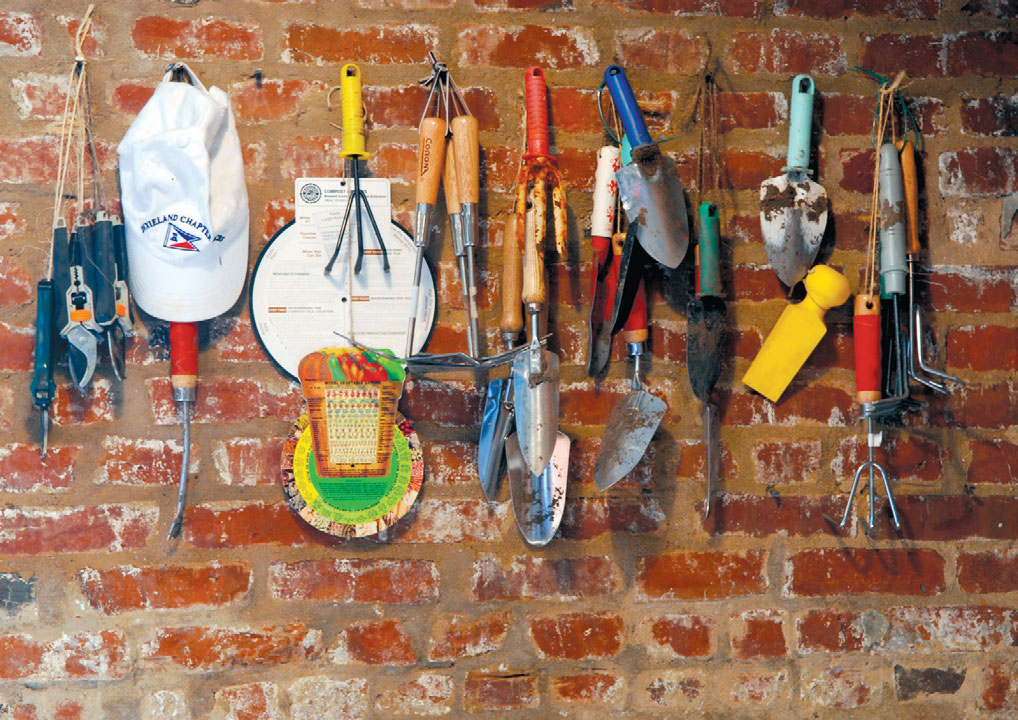Gardening tips to make your efforts more productive - and pleasant
Ready, Set, Garden!
Tips to make your efforts more productive—and pleasant
Fall weather in Houston is usually beautiful, featuring many nights that allow for extended time outdoors and many days that still feel remarkably warm. It serves both as a welcome respite from the suffocating summer heat and as a pleasant preamble to chilly winter months. We have fairly consistent rain with cool fronts that freshen our spirits like a visit from an old friend.
This welcome weather inspires Houstonians to go outside. It follows that, since gardening is the among the greatest outdoor activities, we place a special emphasis on fall gardening.
Gardening, as you know, mostly happens outside—in good weather and in bad, in the heat or cooler temps and come rain or shine. Fall gardening produces some of the American palate’s favorite vegetables, such as potatoes, carrots and broccoli. We find ourselves with two wonderful reasons to garden in the fall: great veggie varieties (like bush beans and fall tomatoes) and the best weather imaginable.
Two considerations when the gardening urge drives you outdoors:
First: Choose varieties that have proven to thrive in Houston gardens.
Second: Mosquitos will be around even as the weather cools. Don’t let mosquitos keep you indoors.
Here are five popular fall vegetables, each listing two Houston-proven varieties:
• Green beans (early fall)—Derby and Gator Green varieties. Choose a quicker producing type and sow seeds before reading any further.
• Broccoli (late September)—Green Goliath and Southern Comet varieties. Broccoli freezes well, so grow it in multitudes and freeze for another day.
• Carrots (September–November)—Scarlett Nantes and Little Finger varieties. Carrots take time, so plant several patches weeks apart and eat them all spring.
• Kale (October)—Red Russian and Lacinato varieties. The rules of kale also apply to collards. These beautiful leafy greens can survive for years.
• Spinach (November–December)—Denali and Melody varieties. Did you know Houston’s freezes won’t affect spinach?
As for the battle of the bugs:
• CedarCide is a local product that can safely control the little buggers. When choosing any spray pesticide, always make sure your spray does not contain neonicotinoids or any other chemical that could be harmful to local pollinators like bees.
• Disturbed plant oils of the right plants can keep mosquitoes away from you and your loved ones. Keep in mind that something must disturb these plants to release the oils and you must remain near the disturbed plant to receive repellant benefits. Remember the saying “a little goes a long way”? This doesn’t apply to using plants as mosquito repellant. Here are some repellant plants listed by Houston “thriveability”:
Lemongrass: Also good for cold/flu as a remedy tea, and very nice smelling.
Geraniums: You need the stinky ones, not the ones acquired at large hardware stores.
Rosemary: As a famous Mediterranean herb, rosemary must have good soil drainage.
Citronella: Like you, it doesn’t like the Houston heat. Plant it in the fall.
I hope your garden grows and your efforts bear fruit.




